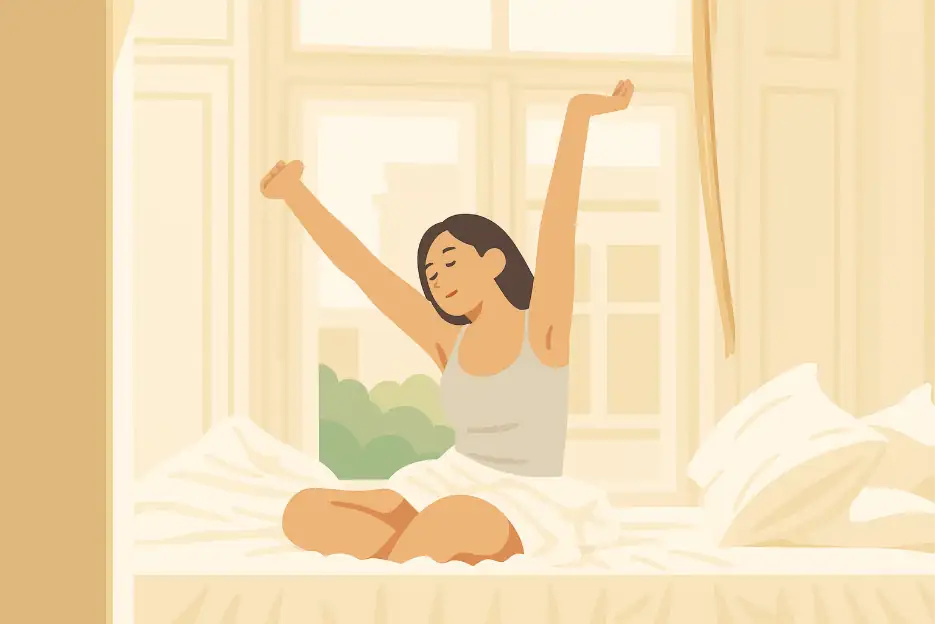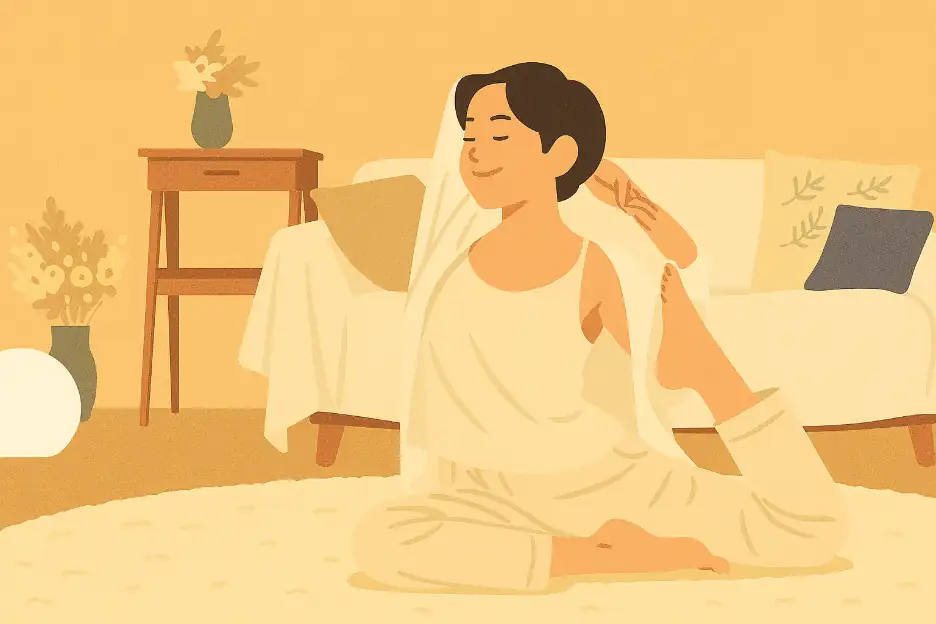At some point in many people’s lives, they go through the rite of passage that is living alone. In many Western countries, it was seen as tradition for children to fly the nest between the ages of 18 to 20 as this coincided with them entering university. In many Asian countries, however, it’s not uncommon for individuals to continue to live with their parents well into their 20s or 30s. In Japan, a 2014 survey found that over 3 million singles aged 35-44 still lived with their parents, and a large proportion of adults aged 20-34 also lived at home.
Living alone is no easy feat, whether you’re experiencing it for the first time, or are already an old hat at it. That’s why it’s important to establish a sense of structure by having habits and routines. It’s often said that humans are creatures of habit, as they help us get through the day and offer us a sense of control and purpose in our lives. (Read here for more info.) When living alone, it’s perhaps even more important to set up habits and routines that help you stay grounded, whether living alone in Japan or elsewhere.
Morning routine

Starting the day on the right foot will dictate whether your day goes well or not. What will tip the scales in your favor is a well-established morning routine. Having a morning routine sets you up for the day, increases productivity, reduces stress, and improves your overall well-being.
When living alone, you have nobody to answer to but yourself. This can be a double-edged sword, especially if you’re not well-versed in the practice of self-discipline. A morning routine can help combat this by training you to stick to a schedule. This means waking up at consistent times, and going through the motions of making the bed, doing your morning ablutions, making breakfast, and then getting ready for work or school.
Accomplishing the activities that make up your morning routine not only helps wake you up, but also helps you hone and sharpen your mental faculties, which can lead to better productivity at work or school. The satisfaction of successfully completing your morning is also a good boost for your self-confidence and self-esteem, as it’s proof that you’re able to take care of yourself and be self-sufficient.
Micro-cleaning

Housework is a necessary evil and must be done, no matter how much you try to put it off. When living alone, unless you have the financial luxury of paying someone to clean the house for you, you are the one solely responsible for keeping things clean, neat, and tidy. It can get overwhelming, the number of chores you realize you need to do in order to keep your living quarters spick and span. This is where the practice of micro-cleaning can come in.
Micro-cleaning is a growing trend that involves breaking down household chores into small, manageable tasks that are done frequently. The key is to set up an efficient and effective cleaning schedule that allows you to tackle cleaning tasks and chores in small increments instead of dedicating a whole day to scrubbing, mopping, vacuuming, and dusting. If you are someone prone to procrastination, it’s always good to keep in mind the 1-minute rule – if it can be done in under a minute, do it now. This means wiping down the counters after cooking, putting your dirty laundry in the hamper, hanging up your outerwear in the closet or on the coat rack, decluttering your desk, or wiping down the sink after you’ve used it. You can gradually expand on this mindset to 5 minutes, 10 minutes, and 15 minutes, depending on the task that needs to be done.
Micro-cleaning is gaining in popularity, especially among young adults and those living alone, as it helps minimize the feeling of being overwhelmed by household chores. By breaking down these chores into bite-sized chunks, you not only have to spend less time cleaning and tidying, but your home remains neat and tidy for longer periods of time with less effort.
Mealtimes

When people think of carving out time for meals, they think mainly of getting the right balance of nutrients. However, an often overlooked element of mealtimes is that it affects many other aspects of your health – physical and mental.
Studies show that a person’s appetite is linked to their circadian rhythm, which roughly follows a 24-hour cycle and regulates things like the timing of physiology, sleep, feeding times, metabolism, and behavior. Research has found that when these rhythms are disrupted, it can not only cause issues with sleep and eating but also increases the risk of medical conditions such as obesity, type 2 diabetes, and cardiovascular diseases.
Setting aside dedicated time for meals is good for your overall physical health as it promotes healthy eating habits, regulates hunger cues, prevents overeating, and provides you with balanced nutrition throughout the day.
Dedicated mealtimes also contribute to better mental health as they provide your day with structure and routine, and if you’re a foodie, something to look forward to, which can provide you with the motivation you need to get through the day. Regular mealtimes are also opportunities for socialization and bonding with family, friends, and colleagues, which can alleviate feelings of isolation and loneliness, especially if you live alone.
Evening decompression

To decompress means to unwind and relax after a long, hard day. In Japan, a country notorious for its rather intense work and school culture, decompressing after coming home from work or school, can not only be beneficial but essential for your overall health and well-being, and help you maintain a good work/life balance.
One of the main reasons to decompress in the evening is to reduce and let go of the stress that accumulated throughout the day. Indulging in activities that help lower stress hormone levels, such as cortisol and adrenaline, helps to promote a sense of peace, calm, and relaxation, which is not only mentally beneficial but also helps prepare your body for sleep.
Research shows that winding down in the evening after coming home from work or school also helps to prevent depression and anxiety. Various winding down activities and relaxation techniques can help reduce muscle tension, improve brain function, and promote better sleep. What you choose to do to help you decompress is up to you, but some suggestions include:
- Yoga
- Meditation
- Breathing exercises
- Coloring
- Doing a puzzle
- Taking a warm bath
- Journaling
- Listening to soothing/calming music
- Creating and adhering to a nighttime routine
Night routine for better sleep

A daily bedtime routine is a set of tasks and activities you do, usually in the same order, in the 30 to 60 minutes before bedtime. Bedtime routines are useful in that they train your brain and body to get ready for bed.
Studies show that your brain begins winding down for sleep a couple of hours before your designated bedtime, and having an established bedtime routine helps to optimize the transition between being awake and falling asleep. Combined with a consistent sleep schedule, bedtime routines help your body and brain to naturally feel sleepy at bedtime.
Aside from providing good sleep hygiene, having a dedicated bedtime routine also has the following benefits:
- It helps you maintain a healthier weight
- It reduces stress and anxiety
- It strengthens your immune system
- It enhances cognitive function and increases energy and productivity for the next day
- Helps regulate and better your mood and emotions
As with wind-down activities in the evening, a bedtime routine is different for each individual. That said, it’s commonly acknowledged that a digital detox 1 to 2 hours before bedtime is something that individuals should incorporate into their night routines, as blue light from devices such as phones, laptops, and tablets trick your brain into thinking it’s daytime. This results in your brain suppressing the release of melatonin, a hormone that controls the body’s sleep cycle, causing you to stay awake longer.
If you are reading this and are looking for an apartment in Japan, why not consider Village House? Village House is a real estate organization with over 1,000 properties across Japan’s 47 prefectures, and we specialize in providing potential renters with low upfront apartment costs. This means no key money, no renewal fees, no handling fees, and for many properties, no deposit fees.
Related articles:

Freelance writer with over 2 years of experience writing for the Village House Blog, ESL teacher, and digital nomad who has lived in countries including The Czech Republic, The UK, The U.A.E., Japan, and most recently, Georgia. Is constantly on the hunt for the best, most optimal apartment for remote work when not enjoying going to film festivals, concerts, and the theater.



